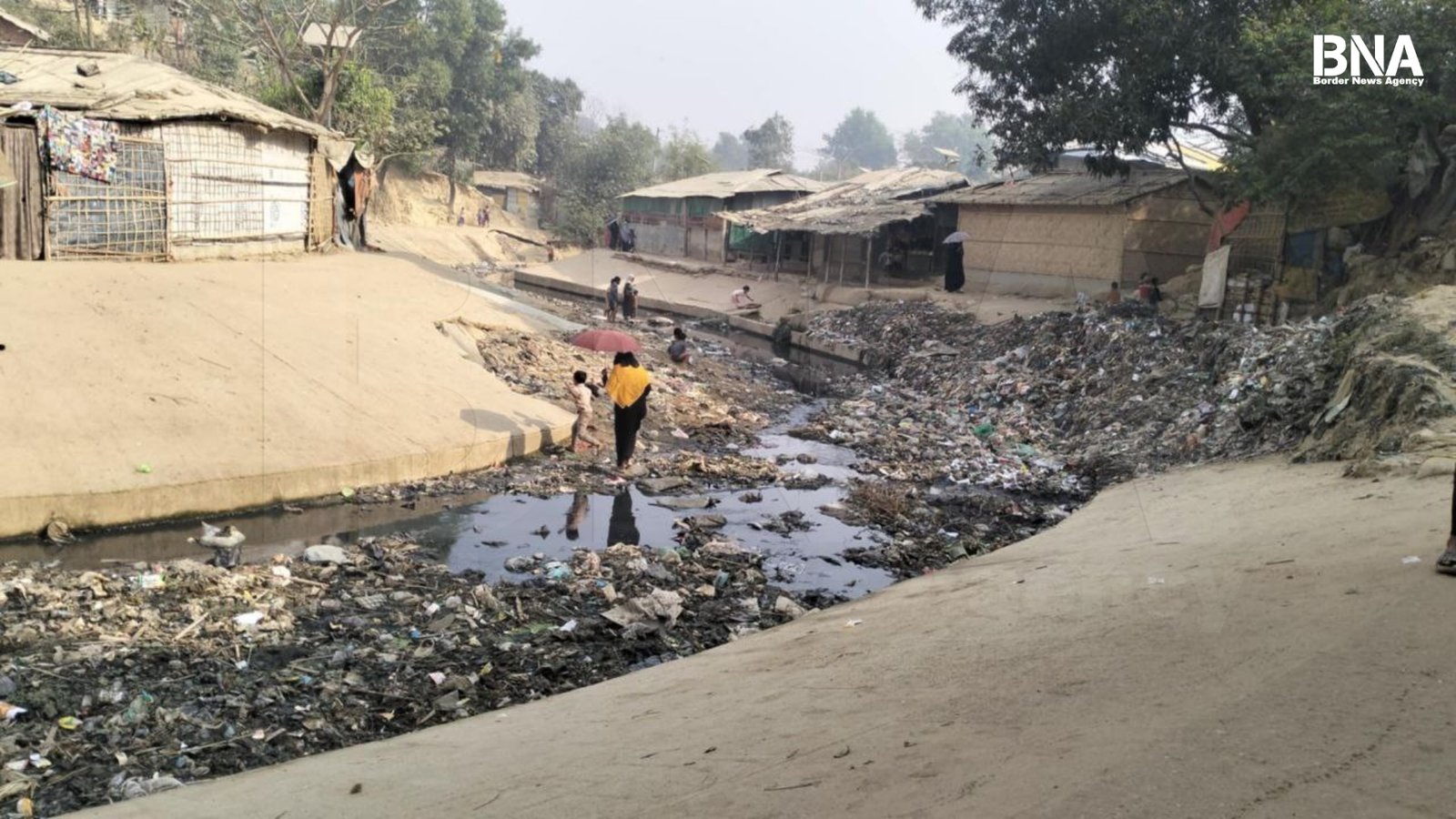A worsening waste crisis has emerged in the Rohingya refugee camps of Cox’s Bazar, as streams between Camp 9 and Camp 11 are now overflowing with garbage. The lack of proper waste management, limited NGO intervention, and the absence of an effective cleaning system have left the refugee community struggling with unhygienic and hazardous conditions.
The once-flowing stream, which was a vital water passage for many refugees, is now choked with plastic, food waste, and other debris. Piles of trash continue to accumulate along the banks, creating an unbearable stench and an environment ripe for disease outbreaks. With each passing day, the situation worsens, exposing thousands of refugees—especially children—to serious health risks.
A Health Disaster in the Making
Rohingya refugees living near the polluted stream have reported an increase in illnesses such as skin infections, respiratory problems, and waterborne diseases. With stagnant and contaminated water, the risk of cholera, dysentery, and mosquito-borne diseases like dengue and malaria has grown significantly.
“Every day, we breathe in the smell of rotting waste,” says a resident of Camp 11. “Our children play near this polluted stream, and many of them have fallen sick. But where can we go? We have no choice but to live here.”
Another refugee from Camp 9 expressed deep frustration over the lack of action by humanitarian organizations. “We expected that the NGOs would help keep our living areas clean, but nothing has been done for months. We are left to suffer in this filth.”
Who is Responsible?
While humanitarian organizations provide aid in various forms, refugees argue that waste management is being neglected. The responsibility for sanitation is divided among multiple agencies, but proper coordination and action seem to be missing.
The government of Bangladesh, along with international organizations such as UNHCR and IOM, has pledged to improve living conditions in the camps, yet waste collection and disposal remain inadequate. Many refugees believe that the reduction in funding for the Rohingya crisis has led to a decline in essential services, including sanitation.
A Plea for Immediate Action
The residents of Camps 9 and 11 are now calling for immediate intervention. They urge NGOs and the Bangladesh government to take urgent measures to clean the stream, install proper waste disposal systems, and implement regular garbage collection.
“We don’t ask for much,” says one refugee. “Just clean water, fresh air, and a safe place for our children. We have already lost our homes, but we should not be forced to live in this filth.”
With over a million Rohingya refugees living in overcrowded and unsanitary conditions, urgent action is needed before the waste crisis turns into a full-scale health disaster. The international community must step forward to ensure that humanitarian aid includes effective waste management solutions for the refugees who have already suffered so much.






